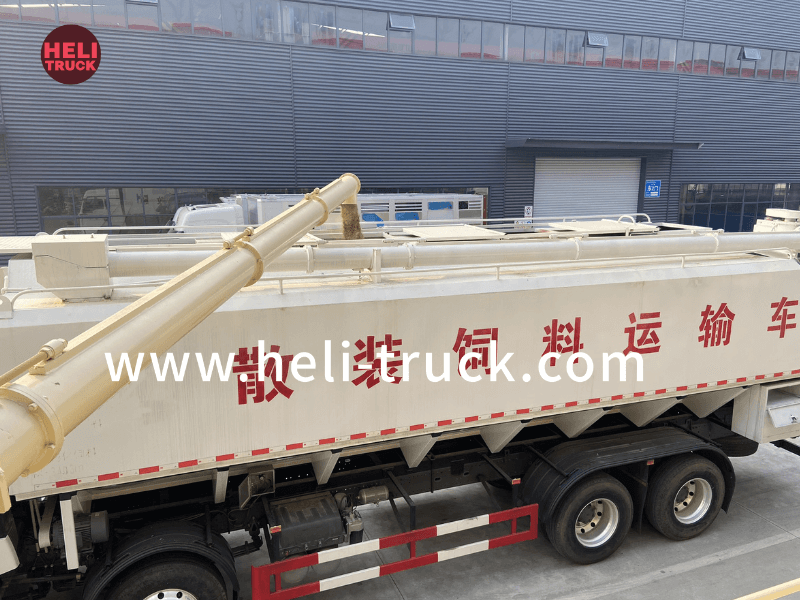Maximizing Efficiency and Sustainability The Essential Role of Garbage Compactor Trucks in Municipal Waste Management

Introduction

Garbage compactor trucks are an essential component of municipal waste management systems around the world. These specialized vehicles play a crucial role in collecting, transporting, and compacting solid waste, helping to keep our cities clean and safe. In this article, we will explore the various types of garbage compactor trucks used in municipal settings, their key features and benefits, as well as the challenges and opportunities associated with their use. By understanding the importance of garbage compactor trucks in waste management, we can appreciate their role in promoting efficiency and sustainability in our communities.
Types of Garbage Compactor Truck s
There are several types of garbage compactor trucks commonly used by municipalities to collect and transport solid waste. The most common types include rear loader, front loader, side loader, and compacting truck.
1. Rear Loader: Rear loader garbage compactor trucks are equipped with a hydraulically operated compactor mechanism at the rear of the vehicle. Workers load waste into the hopper at the rear of the truck, which is then compacted using a hydraulic ram. Once the waste is compacted, it is transported to a disposal site or recycling facility. Rear loader trucks are often used for residential waste collection due to their ease of operation and efficiency.
2. Front Loader: Front loader garbage compactor trucks feature a mechanical arm at the front of the vehicle that is used to lift and empty large dumpsters or bins into the truck's hopper. The waste is then compacted inside the truck using a hydraulic system. Front loader trucks are commonly used for commercial and industrial waste collection, as they are capable of handling large volumes of waste efficiently.
3. Side Loader: Side loader garbage compactor trucks are designed with a mechanical arm on the side of the vehicle that is used to lift and empty waste containers into the truck's hopper. These trucks are ideal for collecting waste from narrow streets or areas with limited access. Side loader trucks are commonly used in urban areas where space is limited and maneuverability is essential.
4. Compacting Truck: Compacting trucks are specialized vehicles equipped with a built-in compactor mechanism that compresses waste as it is loaded into the truck. These trucks are capable of compacting a large volume of waste into a smaller space, reducing the number of trips required to transport the waste to a disposal site. Compacting trucks are often used in areas with high waste generation rates, such as commercial districts or event venues.
Key Features and Benefits of Garbage Compactor Trucks
Garbage compactor trucks offer a range of features and benefits that make them indispensable tools in municipal waste management. Some of the key features and benefits of garbage compactor trucks include:
1. Efficient Waste Collection: Garbage compactor trucks are designed to efficiently collect and transport solid waste from residential, commercial, and industrial areas. The compaction mechanism inside the truck enables workers to compact the waste, allowing for more waste to be transported in each trip.
2. Reduced Labor Costs: Garbage compactor trucks help reduce labor costs associated with waste collection and transportation. The compacting mechanism eliminates the need for manual labor to compress the waste, saving time and resources for municipalities.
3. Improved Hygiene and Safety: Garbage compactor trucks help maintain a clean and hygienic environment by containing and compacting waste inside the vehicle. This reduces the risk of littering, odor, and pest infestations, promoting a safe and healthy community for residents.
4. Environmental Sustainability: Garbage compactor trucks play a vital role in promoting environmental sustainability by reducing the volume of waste that ends up in landfills. By compacting waste and maximizing the use of available space, these trucks help minimize the environmental impact of waste disposal.
5. Versatility and Adaptability: Garbage compactor trucks come in various sizes and configurations to meet the specific needs of municipalities. Whether collecting household waste, commercial waste, or recyclable materials, these trucks can adapt to different waste streams and collection requirements.
Challenges and Opportunities
While garbage compactor trucks offer numerous benefits for municipal waste management, they also present challenges and opportunities for improvement. Some of the key challenges and opportunities associated with garbage compactor trucks include:
1. Maintenance and Repairs: Garbage compactor trucks require regular maintenance and repairs to ensure they operate efficiently and safely. Municipalities must invest in training programs for maintenance staff and establish preventive maintenance schedules to minimize downtime and extend the lifespan of the vehicles.
2. Waste Segregation and Recycling: Garbage compactor trucks can help promote waste segregation and recycling by providing separate compartments for different types of waste. Municipalities can explore opportunities to enhance recycling programs and educate residents on the importance of waste separation to reduce the amount of waste sent to landfills.
3. Technological Advancements: Advancements in technology, such as the integration of telematics systems and GPS tracking, can improve the efficiency and effectiveness of garbage compactor trucks. Municipalities can leverage these technologies to optimize route planning, monitor vehicle performance, and enhance communication between drivers and dispatchers.
4. Alternative Fuel Options: As part of efforts to reduce greenhouse gas emissions and promote sustainability, municipalities can explore alternative fuel options for garbage compactor trucks, such as electric or hybrid models. Transitioning to cleaner fuel sources can help reduce the environmental impact of waste collection and transportation.
Conclusion
Garbage compactor trucks play a vital role in municipal waste management systems by collecting, transporting, and compacting solid waste efficiently and effectively. These specialized vehicles help promote cleanliness, hygiene, and environmental sustainability in our communities. By understanding the various types, features, and benefits of garbage compactor trucks, as well as the challenges and opportunities associated with their use, municipalities can optimize their waste management practices and contribute to a cleaner and healthier environment for all residents. Garbage compactor trucks are indispensable tools in the quest for maximizing efficiency and sustainability in municipal waste management.
